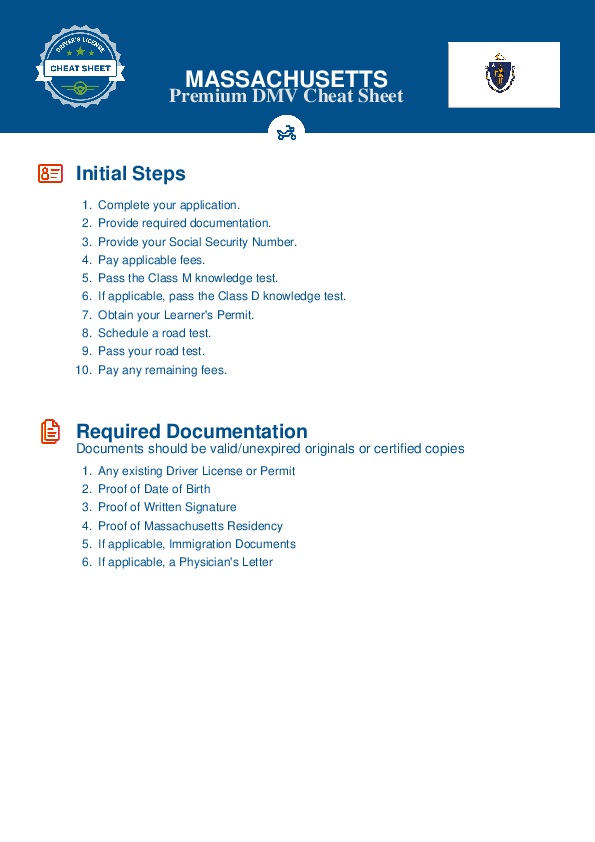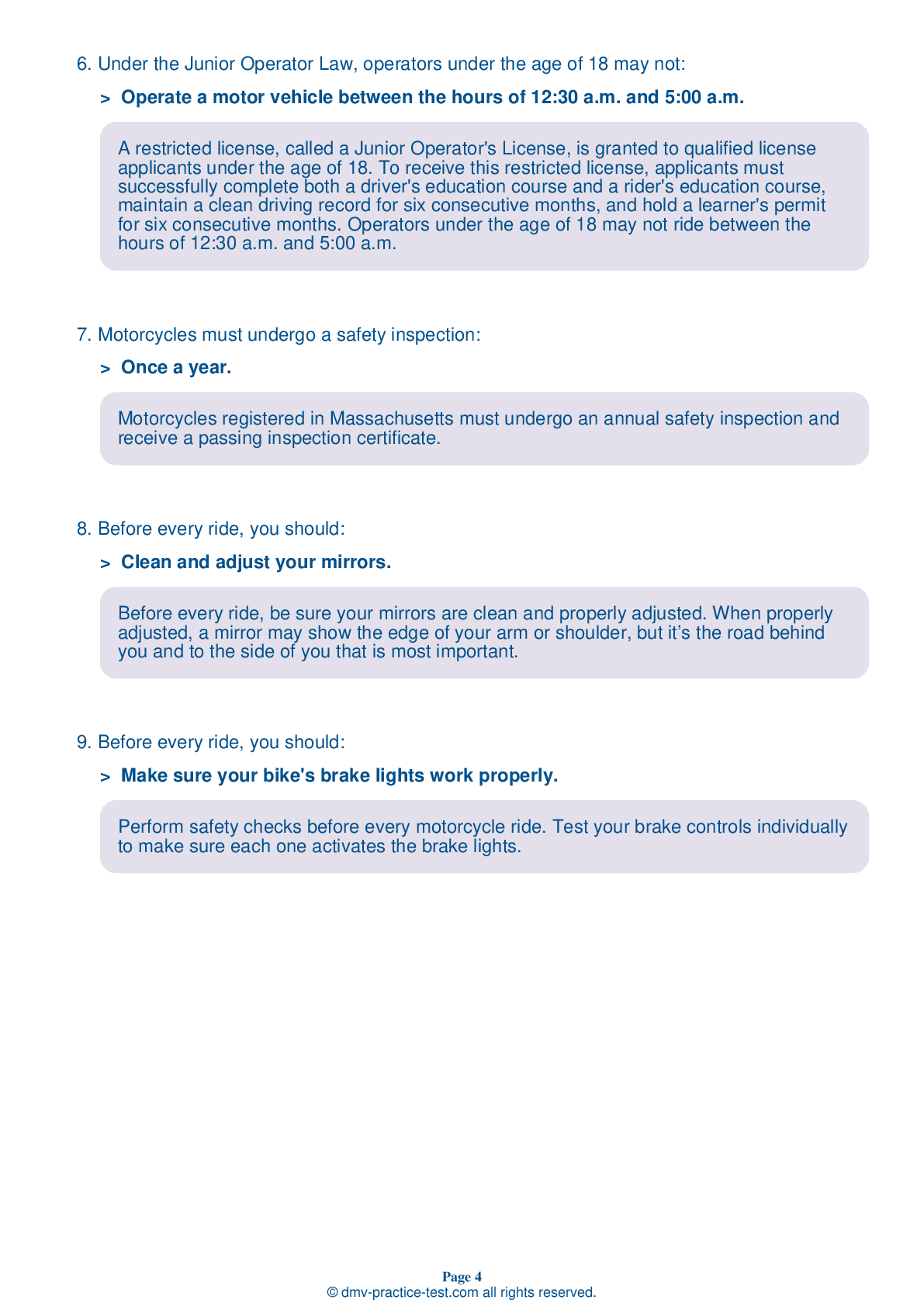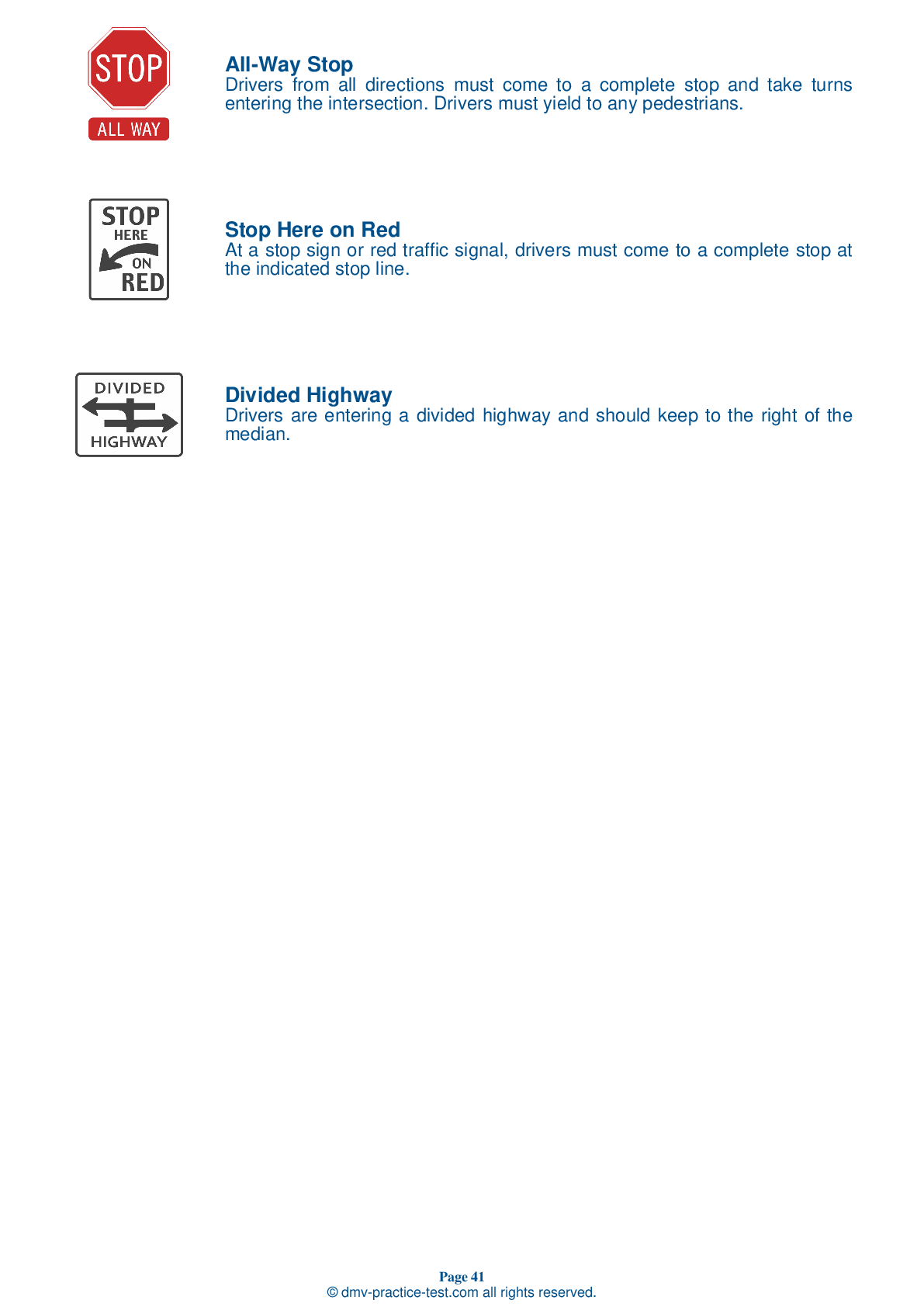Motorcycle Test | License MA 2026 | FREE Online Practice! #5 Page 4 of 5
Take this FREE motorcycle test (license in MA 2026) to check your knowledge of the road rules. To improve your results, download a motorcycle handbook online, study theory, and practice for free on our website. Still worried about how to get a motorcycle license in Massachusetts in 2026? Check our website for more sample tests, train as much as possible, and boost your grades!
16 . When a school bus is stopped on the road ahead to load or unload children, you must:
When a school bus is stopped on the road ahead with its lights flashing and its stop arm extended, you must come to a complete stop and wait to proceed until the lights have stopped flashing and the stop arm is withdrawn. You do not need to stop if the school bus is on the opposite side of a divided highway.
17 . A double solid yellow line down the center of a two-lane road indicates that:
Yellow lines are used to separate traffic moving in opposite directions. Solid lines indicate that operators are not permitted to pass.
18 . To reduce the chance of collision, a motorcycle rider should:
To reduce the risk of being involved in a collision, consistently scan your path of travel at least 10 to 15 seconds ahead of your motorcycle. Scanning the road ahead will give you time to react to a hazard before meeting the hazard.
19 . The primary source of information about your motorcycle should come from:
The owner's manual should be your primary source of information about your specific type of motorcycle. Be sure to read the manual before operating your motorcycle for the first time.
20 . When approaching a blind intersection, you should:
When approaching a blind intersection, move into the part of the lane that will bring you into an oncoming driver's field of vision at the earliest possible moment. For example, when approaching a blind corner to your right, you may be seen sooner if you are in the left portion of your lane and not in the center portion.
See the exact questions that will be on the 2026 Massachusetts DMV exam.
99.2% of people who use the cheat sheet pass the FIRST TIME
Jeneen was tired of paying $5/gallon. She got herself a scooter that required the motorcycle license. She studyed the motorcycle test cheat sheet and passed her test the next day!
Christopher tells us how he knew nothing prior to obtaining the motorcycle study guide, and he only got one question wrong because he clicked on the wrong answer by mistake.



